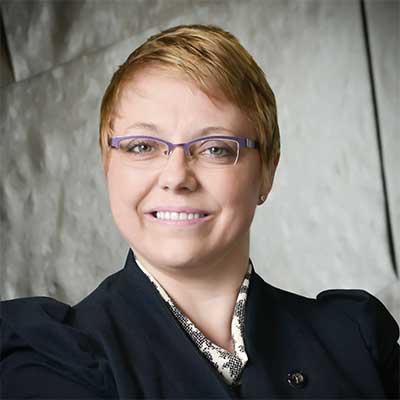

Sophie Paczesny and Shikhar Mehrotra were named co-leaders of the cancer immunology program at Hollings Cancer Center at the Medical University of South Carolina.
Paczesny begins her appointment on July 1 as a professor and chair of the Department of Microbiology and Immunology at MUSC in the College of Medicine. Mehrotra, whose appointment began March 2, is an associate professor in MUSC’s Department of Surgery in the College of Medicine, and is also the co-director of the MUSC Clean Cellular Therapy unit.
Mehrotra has been with Hollings Cancer Center since 2006. His research focuses on understanding T-cell signaling and metabolic pathways to improve the functionality of T cells in adoptive cell therapy.


Paczesny is a member and counselor for the American Society for Clinical Investigation, co-chairperson for both the Center for International Blood and Marrow Transplant immunobiology working group and the American Society of Hematology task force on immunotherapies.
Other areas of her research include developing and translating biomarkers for the outcomes following allogeneic hematopoietic stem cell transplantation (HCT); discovering inhibitors of drug targetable biomarkers for HCT patients; finding novel therapies to treat graft-versus-host disease and improve graft-versus-leukemia reactions, including cellular therapies; and exploring the Alarmin Interleukin-33/ST2 signaling pathway as a novel immune checkpoint in myeloid malignancies and other cancers.











